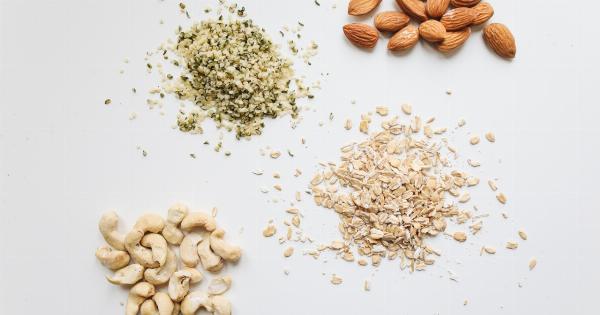Apricots are not only delicious but also highly nutritious. They are packed with essential vitamins, minerals, and antioxidants that provide numerous health benefits. Whether consumed fresh or dried, apricots can be a great addition to a balanced diet.
In this article, we will explore the nutritional value of apricots and the ways they can contribute to your overall well-being.
1. Rich in Vitamin A
Apricots are a fantastic source of vitamin A, with just one cup providing more than 60% of the recommended daily intake. Vitamin A plays a crucial role in maintaining healthy vision, promoting cell growth, and supporting the immune system.
2. High in Vitamin C
Vitamin C is known for its immune-boosting properties, and apricots contain a good amount of this essential vitamin. Consuming apricots can help strengthen your immune system, protect against illnesses, and reduce the risk of chronic diseases.
3. Excellent Source of Fiber
Dietary fiber is necessary for proper digestion and maintaining a healthy weight. Apricots are rich in fiber, promoting regular bowel movements and preventing constipation. Including apricots in your diet can support a healthy digestive system.
4. Abundant in Potassium
Apricots have a high potassium content, an essential mineral for regulating blood pressure levels. A diet rich in potassium can help lower the risk of cardiovascular diseases and maintain healthy blood pressure.
5. Antioxidant Powerhouse
Apricots are packed with antioxidants like beta-carotene and lutein, which protect the body against harmful free radicals. These antioxidants play a vital role in reducing inflammation and cell damage, potentially lowering the risk of chronic diseases.
6. Supports Skin Health
The vitamins and antioxidants in apricots contribute to maintaining healthy skin. Vitamin A promotes cell turnover and helps maintain proper moisture levels, while antioxidants protect the skin from oxidative stress and premature aging.
7. Promotes Eye Health
Apricots contain nutrients that support eye health, particularly due to their high vitamin A and antioxidant content. Regular consumption of apricots may help prevent age-related macular degeneration and keep your eyesight sharp.
8. Boosts Heart Health
The combination of fiber, potassium, and antioxidants in apricots makes them heart-friendly. A diet rich in these nutrients can help reduce cholesterol levels, lower blood pressure, and decrease the risk of heart disease and stroke.
9. Aids Digestion
Apricots can aid digestion due to their fiber content. The fiber adds bulk to the stool, thereby promoting regular bowel movements and preventing digestive issues like constipation.
10. Weight Management
Apricots are low in calories and high in fiber, making them an excellent choice for weight management. The fiber content helps you feel fuller for longer, reducing the tendency to overeat and supporting healthy weight loss or maintenance.
Incorporating Apricots into Your Diet
Now that you know the incredible nutritional value of apricots, here are some delicious ways to incorporate them into your diet:.
– Fresh: Enjoy apricots on their own as a healthy snack or add them to fruit salads.
– Smoothies: Blend fresh or dried apricots into your favorite smoothie combinations for added sweetness and nutrition.
– Baked Goods: Add chopped dried apricots to muffins, bread, or cookies for a burst of flavor.
– Salads: Toss sliced apricots into green salads for a touch of natural sweetness.
– Sauces: Use apricots to make homemade sauces for savory dishes like chicken or pork.
– Dried Apricots: Snack on dried apricots as a tasty and nutritious substitute for unhealthy processed snacks.
Remember to opt for organic apricots when available to avoid any potential exposure to pesticides and chemicals.






























